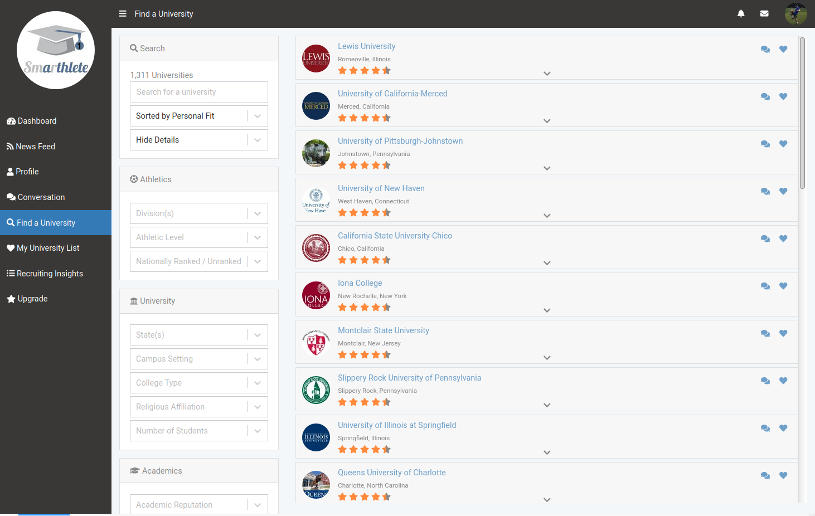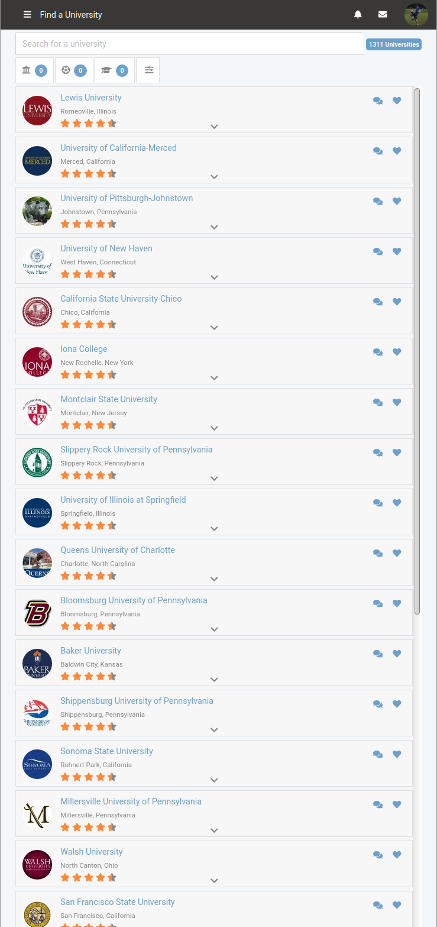How do I get eligible to compete for a NCAA school?
The “National Collegiate Athletic Association” (NCAA) provides all things ”Eligibility” on their website at NCAA Eligibility Center. Besides finding information and resources that have to do with requirements, timelines, definitions or decisions, you are able to register and set up an account.
Unlike the NAIA Eligibility Center, you don't have to complete the entire registration right away. You can register and take a break, as long as you log back on and pay the registration fee (150 USD) within the next 30 days.
What is the purpose of the NCAA Eligibility Center?
The Eligibility Center is a service center for all member schools, existing for one reason:
Certifying any prospective student athlete, looking to play college sports and making sure academic and athletic requirements are fulfilled in order to allow for a level playing field.
In other words, only student athletes who have completed high school (thus entitled to pursue a degree at university level) and who are amateurs by definition, will be determined eligible by the NCAA Eligibility Center.
As a result, the NCAA is the final stakeholder in the process, confirming whether you are able to receive the scholarship at a D1 or D2 member school and represent the sports team or not.
Note that NCAA D-III competition does not require you register with the NCAA Eligibility Center.


University Database
With a Smarthlete profile, you can pick your sport and see all available schools in any of the 3 NCAA divisions!
Are there potential roadblocks I can run into?
If things really turn sour, situations like the following could evolve:
Athletes sign big scholarship deals, get accepted by the school, complete registration for classes and on-campus housing agreements just to find out shortly thereafter that they won't be eligible. The reasons are manifold, but here are some of the most typical ones:
- You have earned (too much) money with your sport
- You didn't complete enough “NCAA core courses” in high school
- You didn't graduate from high school
- Your combined Core-course GPA/SAT result (NCAA “Sliding Scale”) is not high enough
- You are too old or missed out on starting your college degree on time
Don't head into the NCAA Eligibility Center Registration blindly!
Getting certified and cleared to play is too important a step in your recruiting process which you definitely want to get right. Read up & inform yourself!
When and how can I start the process of getting eligible?
Considering there is a plethora of things that could potentially go wrong, it's really important to
- start the process early enough
- get an understanding of some of the key rules that have to do with “Amateurism” rules and the academic requirements for D1 and D2 athletics
Start the registration with the NCAA Eligibility Center in your Junior Year in high school. Yes, you can register earlier and it's also possible to register later, but to keep things simple Junior Year will do just fine. You will need to work with your high school administrators in order to have the school submit your grade transcripts to the NCAA; which will typically happen at the end of Junior Year and once you graduate after Senior Year.
You can go about understanding the rules in various ways:
- speak to your coaches
- read up on the Championship Manuals for the various divisions yourself
- speak to your parents
- speak to the coaches, recruiting you
- have a trusted recruiting expert or recruiting service assist you
If you are the type of student, graduating from high school following the usual timeline with pretty solid grades, you most likely won't run into issues on the academic side of things.
If you are also the kind of athlete who is nowhere close to being a Professional, the same goes for the athletic certification process.
If your answer to any of the above two questions would be a No and/or if you are an International recruit, you will need to be on top of things to master the NCAA Eligibility process.
"Working with the college coach(es) recruiting you and/or your trusted recruiting service is key in making sure you are aware of amateurism rules and continuing to comply with them."
How long will it take until I am eligible to compete?
Unless you start up your registration with the NCAA a few weeks before starting your classes, it will take several months.
The reason for this is the following:
- The NCAA needs to receive enough grades/results from high school (Grade 9 through 11)
- The NCAA needs your SAT/ACT result
- The NCAA needs to get notice from the school, recruiting you This means you need to be put on a school's IRL (“Institutional Request List”)
You are able to request your “Amateurism Certificate“ as early as April 1. If all of the above things are in place, you may be determined an “Early Qualifier”. If not, the NCAA is awaiting additional information from you, such as Grade 12 transcripts to calculate your core-course GPA or information on your sports background.
Enter the NCAA Eligibility Center as one of the free SAT/ACT score recipients. (Code 9999)
That would require you set up your NCAA profile before SAT/ACT results are released.
Which sports are sponsored by the NCAA?
The NCAA sponsors a total of 25 sports in 3 different divisions: NCAA Division 1, NCAA Division 2 and NCAA Division 3.
On the women's side, the NCAA sponsors 22 sports: Basketball, Beach Volleyball*, Bowling, Cross Country, Equestrian*, Fencing, Field Hockey, Golf, Gymnastics, Ice Hockey, Lacrosse, Rifle, Rowing, Skiing, Soccer, Softball, Swimming & Diving, Tennis, Track & Field**, Triathlon*, Volleyball, and Water Polo.
On the men's side, the NCAA sponsors 18 sports: Baseball, Basketball, Cross Country, Fencing, Football, Golf, Gymnastics, Ice Hockey, Lacrosse, Rifle, Skiing, Soccer, Swimming & Diving, Tennis, Track & Field**, Volleyball, Water Polo, and Wrestling.
Note that some sports are offered by schools (e.g. men's rowing, women's wrestling), but are not listed above because they do not have official status as NCAA sport; including no athletic scholarship budgets.
* Equestrian, Triathlon, and Beach Volleyball (women only) are classified as NCAA Emerging Sports.
** Track and Field is offered both as indoor and outdoor championship.
Next Read
Research the various college divisions, how many & which schools there are in your sport specifically: College Athletics Divisions.
Read up on NAIA Eligibility and how the process with the NAIA Eligibility Center is slightly different.